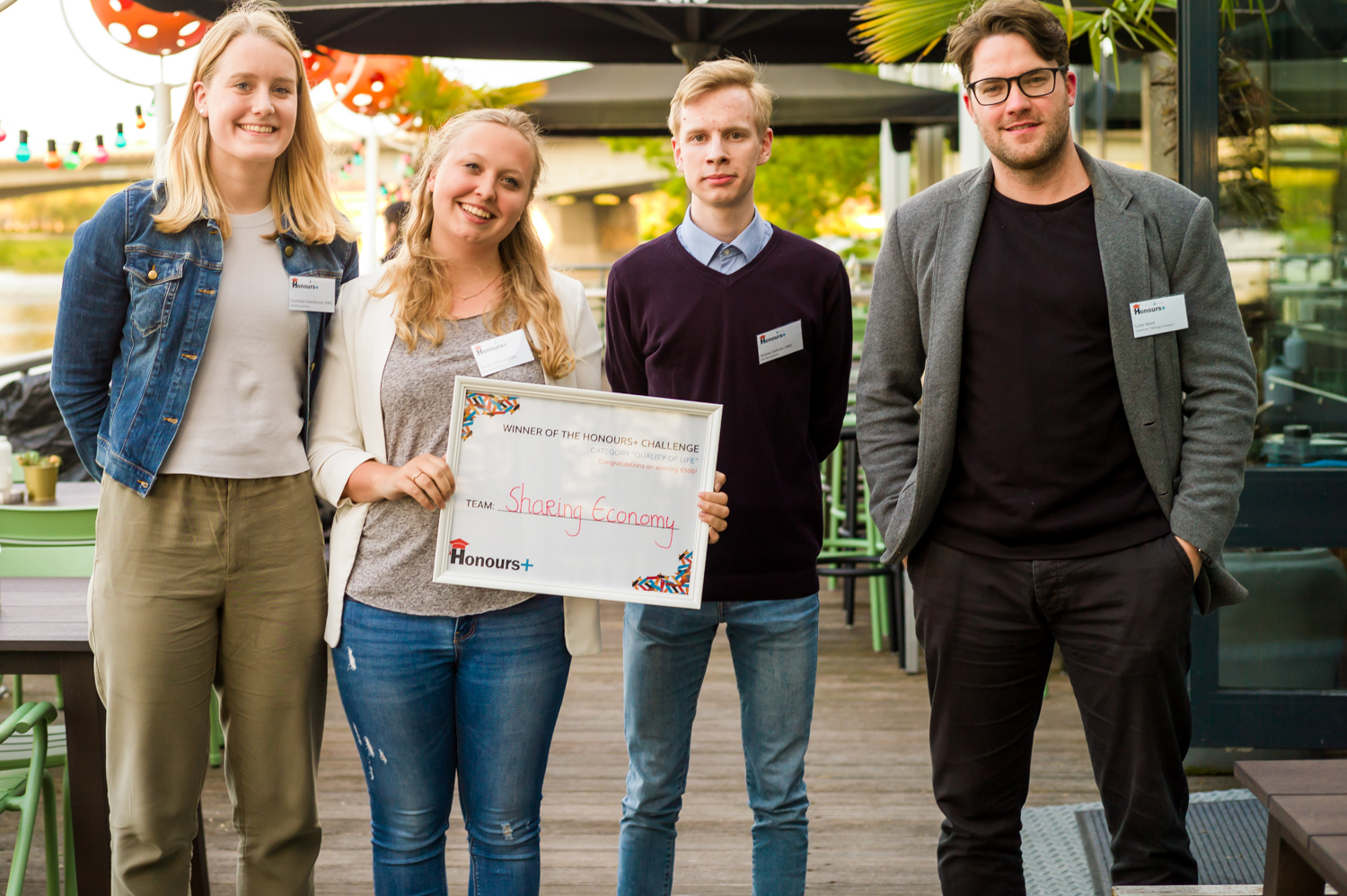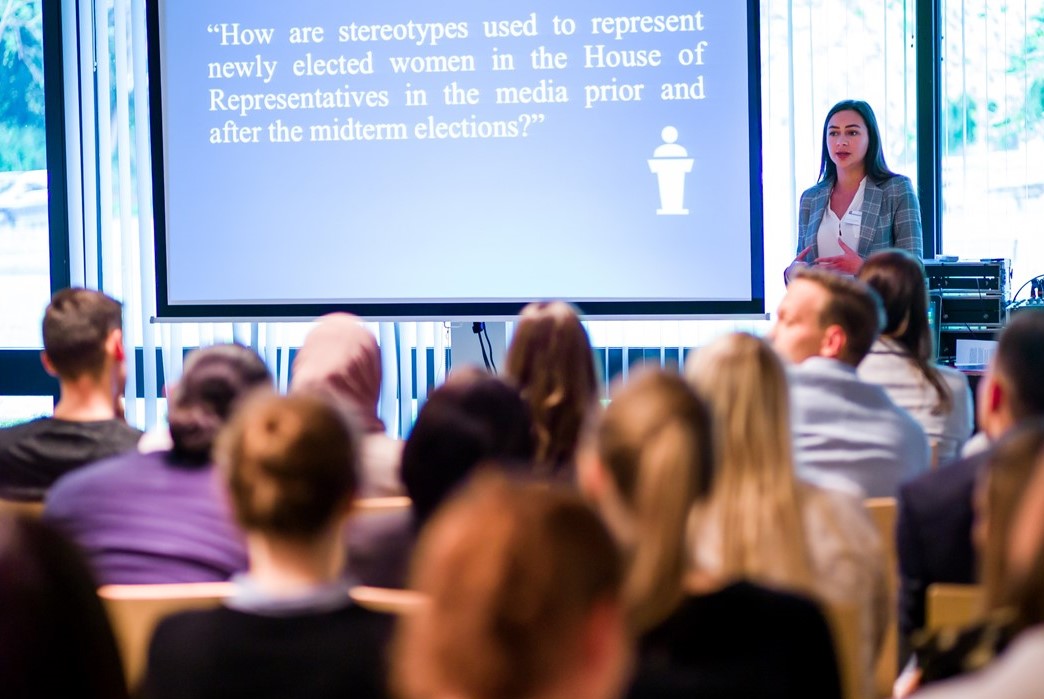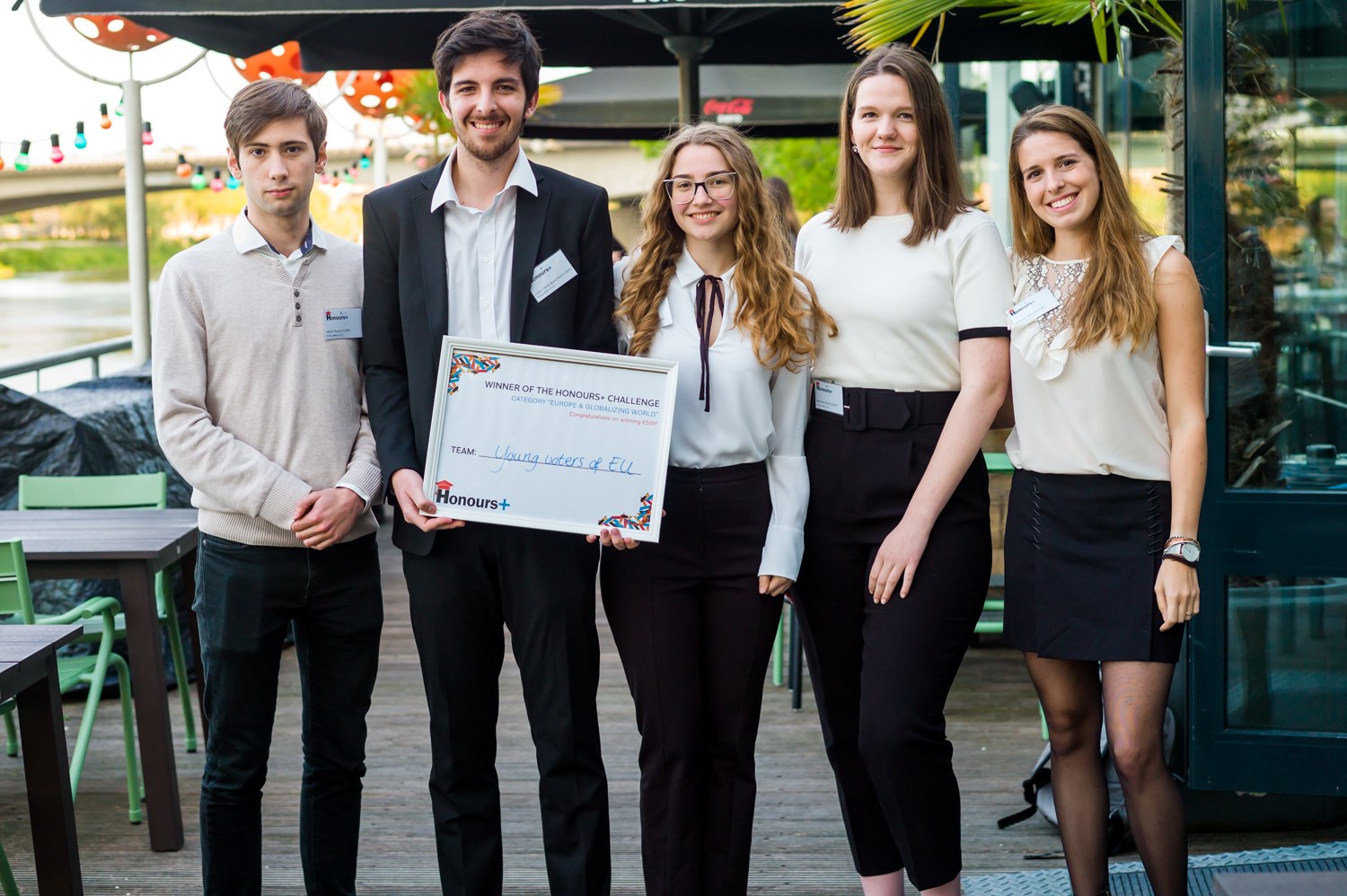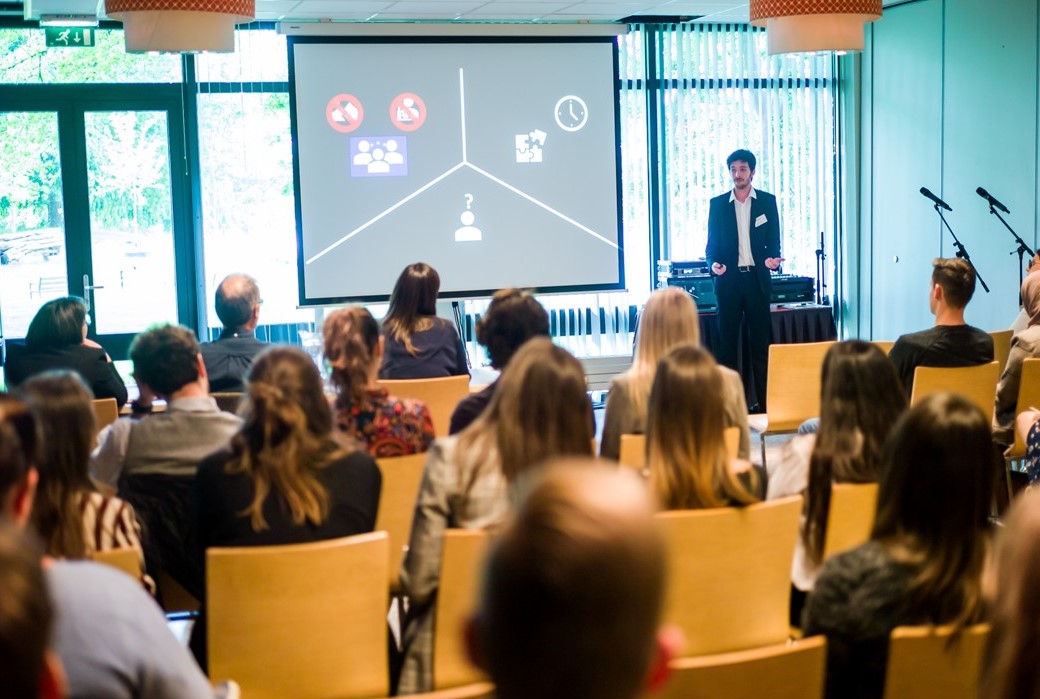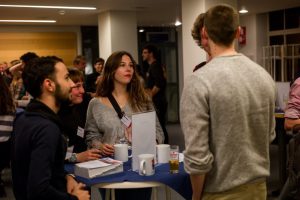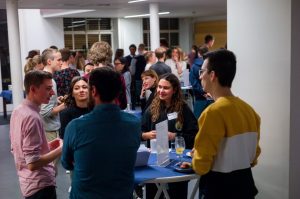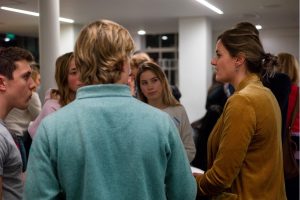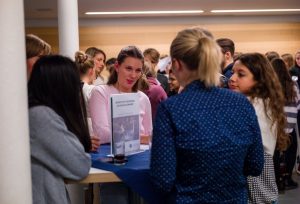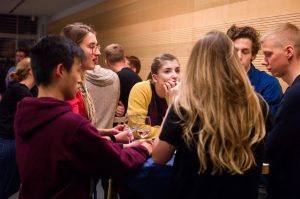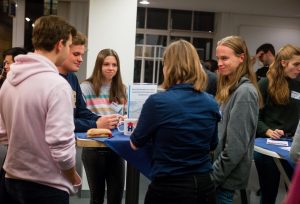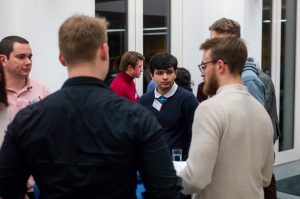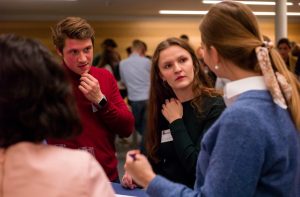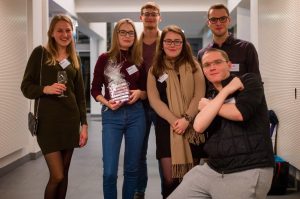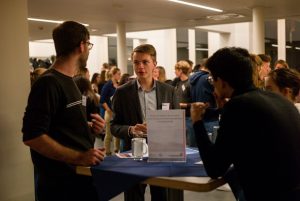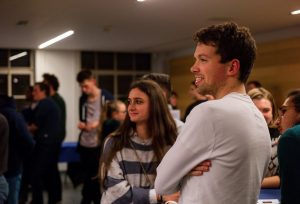Honours+ Finishers website
Dear Honours+ students and Supervisors,
Congratulations on the completion of your challenges and thank you all for another great year of Honours+. It was a year in which Covid-19 defined and changed our lives and the world around us. Such pandemics and situations are exemplary for the challenges of the future that require an interdisciplinary way of working, as is requested of your generation.
We want to thank you and applaud you for your flexibility, self management skills and creative problem solving. We hope all the valuable lessons you learned, the useful knowledge you gained, and all the skills you (further) developed, serve you well in all your future endeavors.
Kind regards,
Honours+ Central Management Team
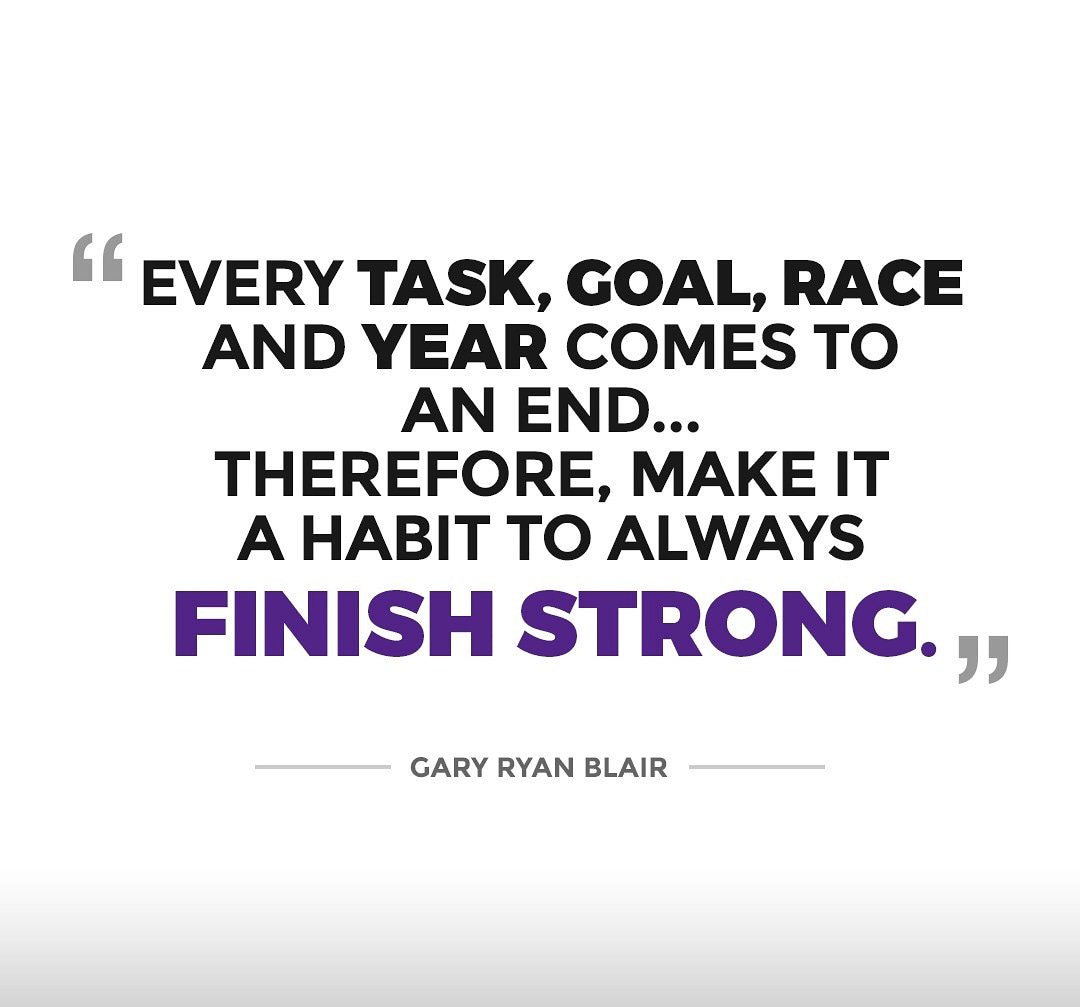
Challenge outcome: pitch
The Honours+ programme is concluded with a round of pitches, during which each team presents their findings with regards to the team challenge to the other Honours+ students, and a jury. The best presentation within every challenge topic will win a team prize.
The team challenges are based upon the Dutch National Research Agenda, and UN’s SDG’s.
Below, this year’s Honours+ students inform the H+ community what potential solution they found (applied research challenges) or what new and value-adding knowledge to the already existing knowledge on this topic their team uncovered (theoretical research challenges).
What is the inequality problem?
This challenge has a theoretical research focus. Therefore, the students’ aim with the challenge is to contribute to the advancement in scientific knowledge for the complete understanding of a topic or certain phenomenon. It is completely theoretical, and focuses on basic principles and testing theories. These challenges are aligned towards collecting information that has universal applicability. Therefore, it aims to adding new knowledge to the already existing knowledge.
Jury members "What is the inequality problem?"
Sally Wyatt
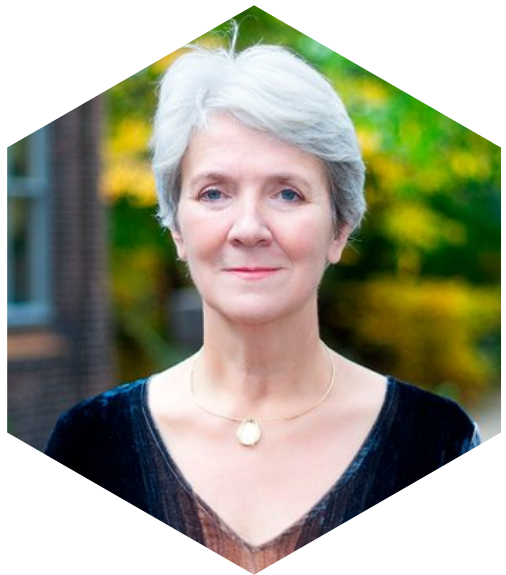
Professor of Digital Cultures Technology & Society Studies
FASoS
Natasja Reslow
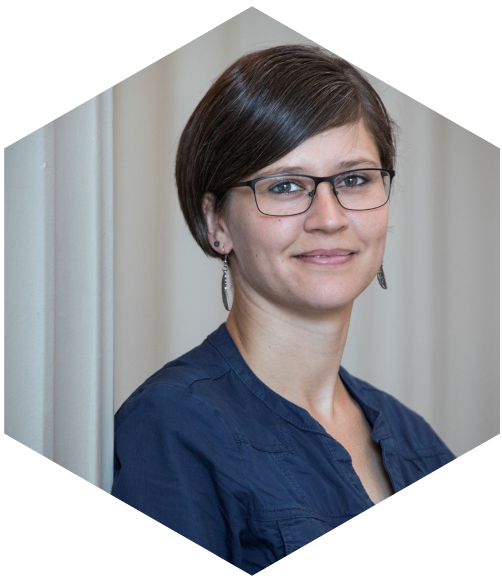
Project Manager UMcares
MUO-HR
Donna Carroll
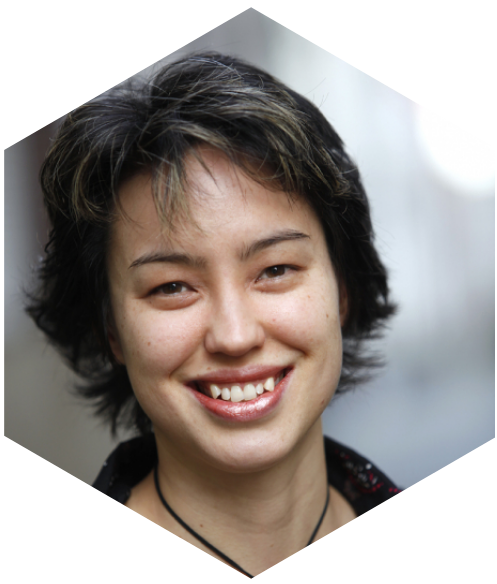
Educational Training Developer and Educational Services Coordinator
EDLAB
What effect is the rising 24-hour economy having on human health and performance?
This challenge can have both a theoretical research focus and an applied research focus.
If students opted for a theoretical research focus, the students’ aim with the challenge is to contribute to the advancement in scientific knowledge for the complete understanding of a topic or certain phenomenon. It is completely theoretical, and focuses on basic principles and testing theories. These challenges are aligned towards collecting information that has universal applicability. Therefore, it aims to adding new knowledge to the already existing knowledge.If students opted for the applied research focus, the students’ aim is directed towards providing a solution to specific problems or an attempt to solve these problems. The research is not done for its own sake, but with the specific aim of solving the problem. It is research that can be applied to real-life situations. It studies a particular set of circumstances, so as to relate the results to its corresponding circumstances.
Jury members "What effect is the rising 24-hour economy having on human health and performance?"
Jonathan van Tilburg
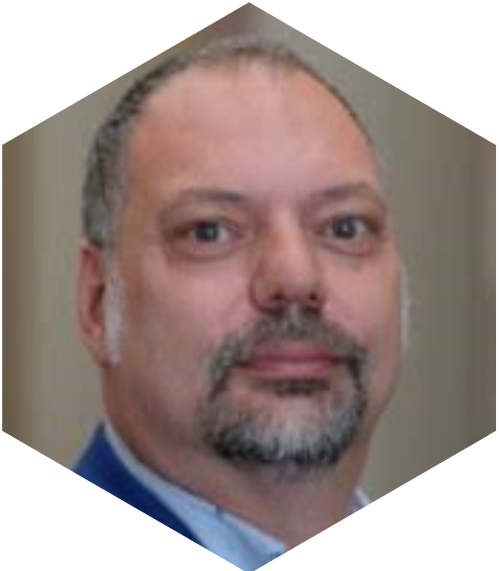
Senior lecturer Humane Biology
FHML
Stephan Smeekes
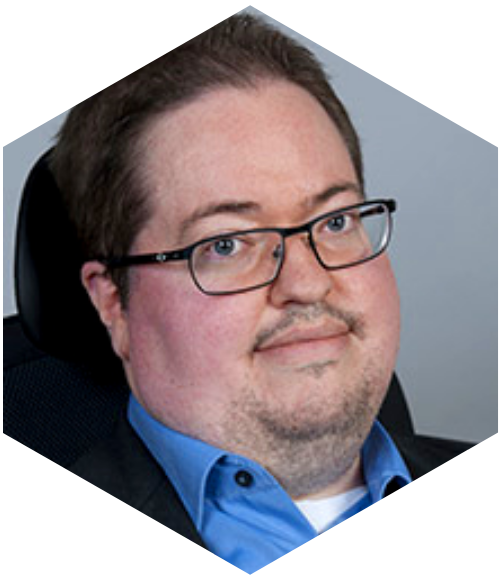
Associate Professor QE / Econometrics, Quantitative Economics
SBE
Rogier Veltrop
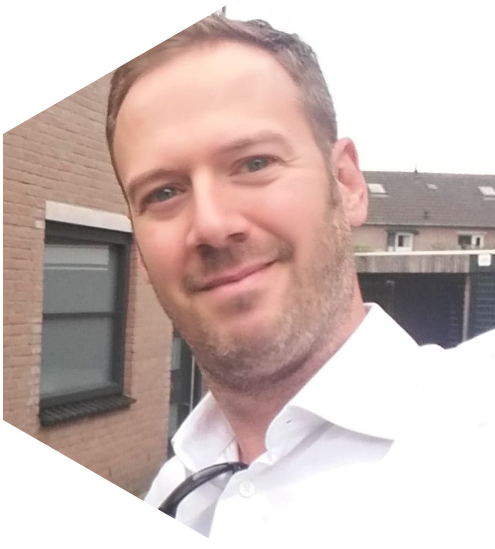
PhD fellow Marie Skłodowska-Curie actions (MSCA-ITN)
RWTH Uniklinik Aachen and CARIM Maastricht
What are the implications and challenges associated with worldwide urbanization?
This challenge has a theoretical research focus. Therefore, the students’ aim with the challenge is to contribute to the advancement in scientific knowledge for the complete understanding of a topic or certain phenomenon. It is completely theoretical, and focuses on basic principles and testing theories. These challenges are aligned towards collecting information that has universal applicability. Therefore, it aims to adding new knowledge to the already existing knowledge.
Jury members "What are the implications and challenges associated with worldwide urbanization?"
Jermain Kaminski
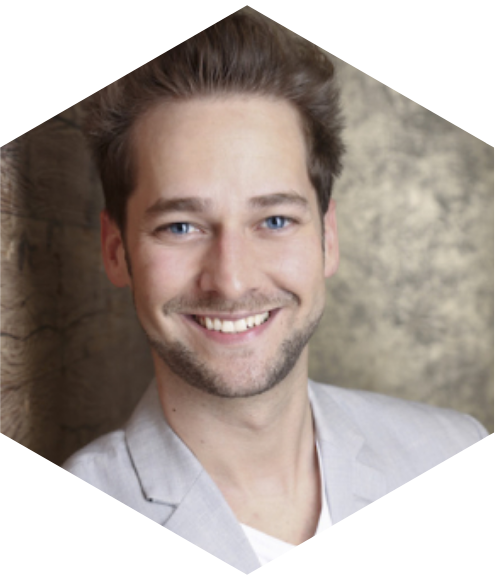
Assistant Professor Organisation and Strategy
SBE
Ike Kamphof
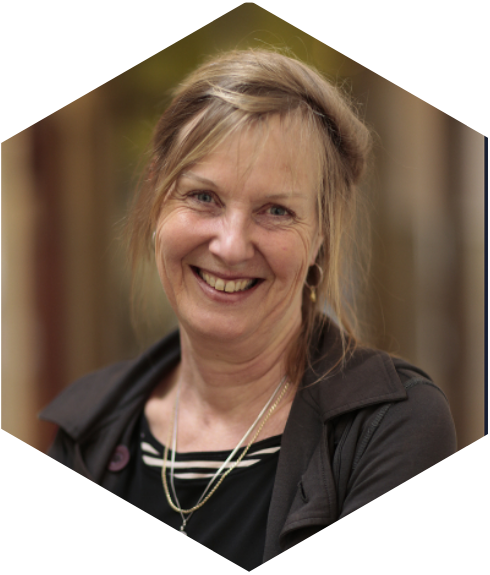
Assistant professor Philosophy, lecturer Digital cultures
FASoS
Stefan Jongen
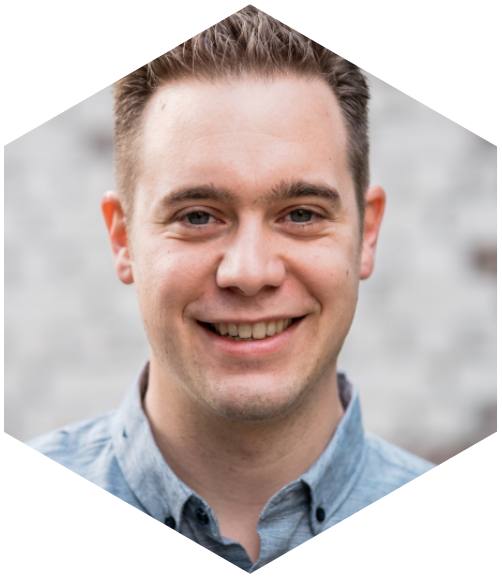
Coordinator UTQ/CPD, Scientific Information Specialist
MSP-FSE
Julie de Ronde
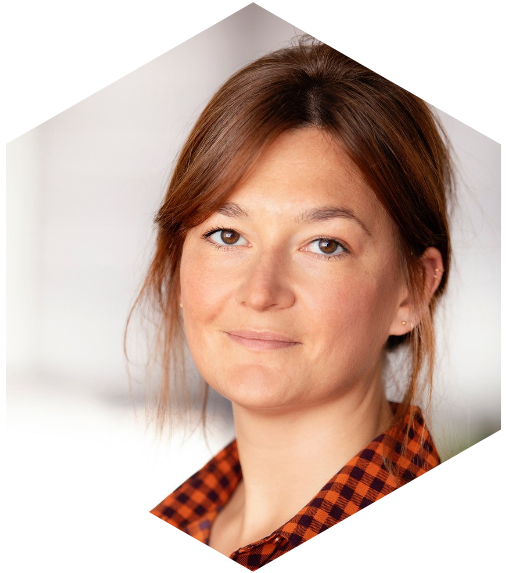
Coordinator Educational Innovation
EDLAB
How do we improve the quality and availability of health care as much as possible while keeping it affordable?
This challenge has an applied research focus. Therefore, the students’ aim is directed towards providing a solution to specific problems or an attempt to solve these problems. The research is not done for its own sake, but with the specific aim of solving the problem. It is research that can be applied to real-life situations. It studies a particular set of circumstances, so as to relate the results to its corresponding circumstances.
Jury members "How do we improve the quality and availability of health care while keeping it affordable?"
Jonathan van Tilburg

Senior lecturer Humane Biology
FHML
Stephan Smeekes

Associate Professor QE / Econometrics, Quantitative Economics
SBE
Rogier Veltrop

PhD fellow Marie Skłodowska-Curie actions (MSCA-ITN)
RWTH Uniklinik Aachen and CARIM Maastricht
How do we strike the right balance between freedom and responsibility?
This challenge has a theoretical research focus. Therefore, the students’ aim with the challenge is to contribute to the advancement in scientific knowledge for the complete understanding of a topic or certain phenomenon. It is completely theoretical, and focuses on basic principles and testing theories. These challenges are aligned towards collecting information that has universal applicability. Therefore, it aims to adding new knowledge to the already existing knowledge.
Jury members "How do we strike the right balance between freedom and responsibility?"
Sally Wyatt

Professor of Digital Cultures Technology & Society Studies
FASoS
Natasja Reslow

Project Manager UMcares
MUO-HR
Donna Carroll

Educational Training Developer and Educational Services Coordinator
EDLAB
How do the old and new media influence individuals and society?
This challenge has a theoretical research focus. Therefore, the students’ aim with the challenge is to contribute to the advancement in scientific knowledge for the complete understanding of a topic or certain phenomenon. It is completely theoretical, and focuses on basic principles and testing theories. These challenges are aligned towards collecting information that has universal applicability. Therefore, it aims to adding new knowledge to the already existing knowledge.
Jury members "How do the old and new media influence individuals and society?"
Jermain Kaminski

Assistant Professor Organisation and Strategy
SBE
Ike Kamphof

Assistant professor Philosophy, lecturer Digital cultures
FASoS
Stefan Jongen

Coordinator UTQ/CPD, Scientific Information Specialist
MSP-FSE
Julie de Ronde

Coordinator Educational Innovation
EDLAB



